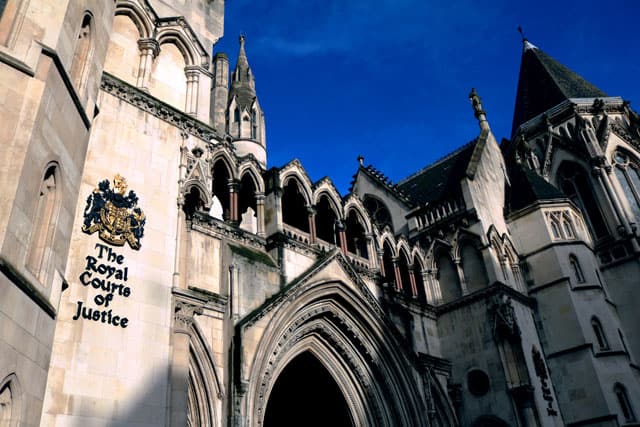This post is not about family law; it’s about defamation law. It involves alleged behaviour by a husband (Bruno Lachaux) to his wife (Afsana Lachaux). Since their separation, Mr and Mrs Lachaux have been involved in litigation in the family court which we wrote about in September last year. That litigation involved both financial matters and children matters. There was also a separate ongoing libel case brought by Mr Lachaux regarding a number of publications about his marriage. Mrs Lachaux was not a party in the libel case.
Here is a brief update, as the libel case has now concluded, subject to any appeal. A copy of the judgment is available at the 5RB website and this blog post at INFORRM sets out the new decision briefly.
Mr Lachaux had previously succeeded in establishing a claim that his reputation was likely to have suffered serious harm because of the statements made about his (alleged) abusive behaviour toward Mrs Lachaux and their son. In defamation cases, if a claim fulfils certain criteria, the burden of proof shifts to the publishers to attempt a defence (or just settle out of court). The issue in the claim that these publishers had unsuccessfully argued was the meaning of ‘serious harm’ under section 1 of the Defamation Act 2013, an argument that went all the way to the Supreme Court.
Basically, the publishers could not be confident they would succeed with a ‘truth’ defence under section 2 of the Defamation Act 2013. This is unsurprising, as even Mr Justice Mostyn struggled to find the ‘truth’ amongst all the allegations when he dealt with the family court case. His judgment is noted by Nicklin J at paras 86-90.
At para. 15, Nicklin J says:
It is a reasonable inference that the decision to abandon reliance the defence of truth was based, at least in part, upon a decision in family proceedings between Afsana and the Claimant which led to a judgment of Mostyn J on 2 March 2017.
The Independent and the Evening Standard didn’t give up though. They tried to defend the claim by running a ‘public interest’ defence under section 4 of the Act. This is a useful defence, especially for investigative journalists who may be relying on confidential sources and under time pressure to get their story out. The journalist may feel certain the public need to know – but proving ‘truth’ if later sued for libel can be difficult. Section 4 was enacted in 2013 to address this potential chilling effect. Under the section, the court will take all the circumstances, and due respect for editorial judgement, into account in deciding whether it had been reasonable for the publication to go ahead. One of the important factors is ‘verification’ i.e. did the journalist do enough checking? In this case, Mr Justice Nicklin was very critical about the lack of verification, especially that no one had asked Mr Lachaux for comment before publication. He has awarded Mr Lachaux damages of £120,000 and ordered the newspapers to publish a summary of his judgment (albeit seven years since the libellous stories). The legal costs by now must be huge.
This is a long judgment, that will probably be very useful to the media and to media lawyers. It is also a reminder to all publishers that it’s advisable to look for the other side of the story before rushing to publish.
We have a small favour to ask!
The Transparency Project is a registered charity in England & Wales run largely by volunteers who also have full-time jobs. We’re working hard to secure extra funding so that we can keep making family justice clearer for all who use the court and work within it.
We’d be really grateful if you were able to help us by making a small one-off (or regular!) donation through our Just Giving page.
Thanks for reading!
